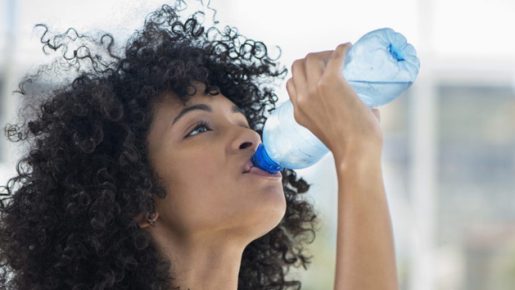In an insightful exploration of the crucial role water plays in maintaining optimal health, Dr. Chukwuma Ogunbor, a distinguished Family Physician, underscores the far-reaching implications of dehydration. Beyond the commonly acknowledged consequences, such as unclear thinking and mood swings, Dr. Ogunbor highlights the potential for overheating, constipation, and kidney stones when the body is not adequately hydrated.
Going deeper into the physiological aspects, he emphasizes the role of saliva, generated through sufficient water intake, in aiding digestion and maintaining moisture in the mouth, nose, and eyes. This not only prevents friction and damage but also contributes to oral hygiene. Dr. Ogunbor further advocates for choosing water over sweetened beverages, citing its potential to reduce tooth decay.
Shifting the focus to the environmental impact on health, Consultant Ophthalmologist/Public Health Specialist, Dr. Ibukunoluwa Adeogun, sheds light on the regional challenge of increased heat waves. Particularly notable in sub-Saharan Africa’s rapidly expanding urban areas, these heat waves are exacerbated by infrastructural changes that displace natural cooling elements, such as plants and water bodies. Adeogun aptly characterizes the management of heat waves as a sociopolitical issue, advocating for government intervention through informed urban and regional planning.
While acknowledging the broader societal perspective, Adeogun underscores the individual’s vulnerability to dehydration during heat waves. He cites specific groups at risk, including babies, the elderly, individuals with long-term health conditions, and athletes. Drawing on international health sources, he highlights severe dehydration’s potential adverse effects, ranging from heatstroke and seizures to kidney failure and skin-related issues.
Adeogun’s key preventive measure is a simple yet potent one: staying consistently hydrated. He recommends increasing daily water intake, adjusting it to four to five liters during periods of hot weather and heightened physical activity. The importance of reducing caffeinated or intoxicating drinks is emphasized, as they can increase the osmolality of blood.
Furthermore, Adeogun advocates for a diet rich in water-containing fruits, such as watermelon and cucumber, and underscores the significance of antioxidants found in fruits for combating the elevated metabolic rate during extreme heat. Lifestyle modifications, including minimizing outdoor activities, using protective gear like hats and sunshades, and applying sunscreen, are suggested to mitigate the impact of heat waves.
Supporting these recommendations, Consultant Public Health Physician, Dr. Adeleke Kayode, stresses the need for exposure to fresh air during hot weather, emphasizing the importance of adequate water intake and suggesting a pre-sleep shower. He also highlights the significance of ventilation by encouraging the opening of windows.

Water
In this comprehensive discourse, the healthcare professionals collectively offer a multifaceted approach to combating the challenges posed by dehydration during heat waves, encompassing individual lifestyle adjustments, dietary choices, and broader societal considerations in urban planning.
Source: guardian.ng

